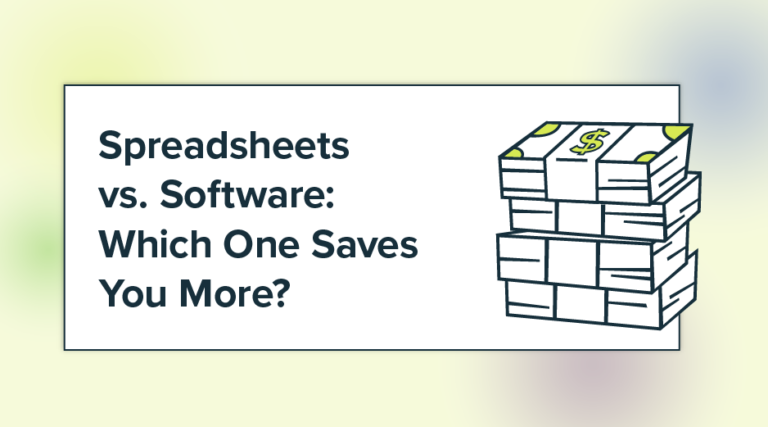 At EnergyCAP we’ve been involved in a few RFP processes where we knew that the chosen Energy Management System (EMS) software vendor
At EnergyCAP we’ve been involved in a few RFP processes where we knew that the chosen Energy Management System (EMS) software vendor
was not going to be able to supply the goods and/or services required.
The solution (and the price!) might have looked appealing at first glance, with lots of pretty charts and graphs, but if the client stakeholders would have taken a closer look, they might have discovered that Sales was putting lipstick on a pig.
If you think you may be in the market for utility bill and energy management software, you owe it to yourself and your organization to ask potential vendors the hard questions. For each question, we’ve provided an explanation and an EnergyCAP benchmark to consider as a standard for your next EMS software RFP.
1. How does your software handle deregulated pricing scenarios for commodities such as electricity and natural gas?
Utility bills have become more detailed and complex in the deregulated energy environment, where one vendor may provide a commodity and another vendor may deliver it. When your EMS software captures all that utility data, can you be sure that you are tracking what you want to track, and not double-counting the data?
In EnergyCAP, you can set up separate account/meter relationships for each vendor (supply and distribution), and keep track of energy use with “information-only” line items that prevent double counting for reports. User-configurable bill entry templates make it easy to capture any desired bill line items. The result is cleaner and more comprehensive energy accounting.
2. Does your software offer an accounting interface to eliminate redundant data entry and streamline utility bill workflow?
Make sure that your chosen EMS vendor has the ability to address all interface issues. Don’t be satisfied with a system that requires you to enter the same billing information again and again in multiple systems. It’s a recipe for error and inefficiency. Your EMS solution should deliver more.
EnergyCAP has implemented data reformatters for dozens of major clients with systems such as PeopleSoft, Banner, FAMIS, SAP, Oracle, JD Edwards, and Advantage Financials, as well as proprietary accounting systems. We have decades of experience customizing accounting workflows and helping your office systems work together for greater efficiency.
3. Can your EMS perform percentage bill splits and chargeback calculations based on imported meter readings?
Many campus-type and multi-tenant organizations manage utility expenses through internal billing. The processes involved in calculating and allocating departmental or tenant energy costs can be complex. Make sure that your EMS vendor can perform any necessary internal invoicing tasks using calculations based on data from your submeter network.
Watch our video on how the University of Kansas solved their chargeback challenges with EnergyCAP.
4. What are your options for bill entry/import?
How are you planning to get energy data into your EMS? How many years of historical data do you intend to migrate for benchmarking purposes? Your software solution should be robust enough to handle a variety of migration options including manual data entry, flat file import, EDI, OCR, and bill image archiving. Remember, the goal is to spend less time getting data into the system and more time getting results out.
At EnergyCAP we’ve got a comprehensive software and service solution that can reduce the drudgery and let you focus on more valuable energy management tasks.
5. How frequently do you update your software, and what services do you offer to assure long-term customer success?
A key metric for software solutions is the pace of development. Too many EMS vendors are willing to sell a legacy product with the full knowledge that their solution is not keeping pace with technological advances and energy industry changes. Make sure that you understand your software vendor’s release schedule and development commitment for your specific solution.
At EnergyCAP, we usually release an updated reporting package each month, and our online product is updated almost as frequently. You can count on a major release or two every year, with new features and functions that will enhance your ability to achieve your energy management goals.
6. Do you outsource your technical support? If so, where?
We’ve all had the unpleasant experience of speaking to a support representative who either couldn’t understand our questions or couldn’t answer them. Too many EMS software vendors are willing to outsource Customer Service without outsourcing the expertise required to meet customer needs. Maybe it’s cheaper, but will it work for you or against you? Make sure that your solution provider has the bandwidth for timely technical support and customer success.
At EnergyCAP, our Customer Service staff is 100 percent in-house, with direct access to our software implementation and development teams.
7. Does your software offer the ability to create estimated bills (accruals) based on historical bills when it’s necessary to “fill” an accounting period with data?
There are 15 business days left in the quarter, and your Accounting Department is demanding a quarterly utility expense report. What do you do?
Your energy management software should be able to help you fill in those awkward gaps at the end of the accounting period so that you can tell an accurate story regarding your energy use and cost. If accruals are important to you, make certain that your EMS can deliver.
EnergyCAP offers two options: (a) an accruals report that provides estimated energy cost numbers based on historical values, and (b) an Accruals module that generates accurate estimated bill transactions – including use, demand, and cost – for a user-designated time period. So, don’t fret when Accounting comes calling. EnergyCAP makes it easy to give them what they want, when the want it.
8. How does your software audit for potential utility bill errors, and how many audits are available?
Verification of data is critical for energy management analysis. We all understand the phrase “garbage in, garbage out.” Make sure that your EMS provider has a robust set of software tools for ensuring the accuracy of incoming data.
EnergyCAP has 50+ user-configurable audits that can be run in individually-configured groups with user-determined tolerance levels. These audits can also be automated and worked into your organization’s utility bill workflow, from data entry through bill payment.
9. Can your software accommodate a customizable workflow process that allows for supervisory approval of bills prior to payment?
Utility bill management can be a challenging and cumbersome process, especially for large organizations with hundreds or even thousands of monthly bills from multiple vendors. When processes break down, late fees, even shut-off notices, may result. Your EMS needs to provide options for streamlining and enhancing your bill payment workflow.
EnergyCAP provides user-configurable workflow tools to accommodate your organization’s review and approval process, from initial data entry through payment and beyond.
10. Can you provide a list of three references from organizations using your software for 5 years or more.
There’s a lot of venture capital floating around the energy management industry these days, but all that glitters is not gold. Startups have their place, but can they really provide the expertise and experience that you need to take your energy management program to the next level? Ensure that your next EMS provider has a history of success in the industry. Follow up with references, and make sure to ask the questions that reflect your organizational priorities.
EnergyCAP is always pleased to provide references, and can often provide contacts in your locality/region that match your organization type.
11. Does your software include IPMVP-compliant measurement & verification (i.e., Cost Avoidance) functionality?
You invest heavily in retrofit projects, employee education, and other efforts to conserve energy, but how do you know that your efforts are yielding desired results? Make sure that your EMS software vendor is conversant in the methods and processes for performing accurate and verifiable M&V calculations. Is your prospective EMS solution compatible with commonly-accepted assessment practices?
EnergyCAP helped write the book on Cost Avoidance, and provided the very first PC-based cost avoidance tools back in the 1980s. We use the Option C Whole Building Methodology that is a primary M&V technique for thousands of organizations.
12. Do you offer the ability to view, analyze, and report on my energy use and cost data in Actual, Calendarized, and Weather-normalized formats?
If your billing period is 33 days long one year, and 30 days long the next, it can be very difficult to make meaningful comparison from year to year using actual billing data. A robust EMS system is one that will give you reporting options to normalize for key variables such as billing period length, facility square footage changes, and weather. Determine the specific nature your reporting needs, and make sure that your EMS vendor can deliver before you sign on the dotted line.
EnergyCAP helps you keep a log of facility changes, and automatically considers that history when making important calculations such as use/area or cost/sq. ft. EnergyCAP’s weather normalization process involves a meter-by-meter linear regression analysis that quantifies the degree of weather sensitivity. This makes it possible to perform year-to-year energy use and cost calculations without weather bias. When this is combined with click-of-the-mouse simple calendarization, the result is incredibly accurate monthly reporting that adds real value to your energy analysis.
Hopefully these 12 questions will help get you the answers you need to navigate your next EMS purchase successfully, and procure a product that will provide your organization with years of reliable and valuable energy management insights.
{{cta(‘01979c85-f15c-45dd-bfa0-de33909fb605′,’justifycenter’)}}
 Best-in-class portfolio-level energy and utility bill data management and reporting.
Best-in-class portfolio-level energy and utility bill data management and reporting.
 Real-time energy and sustainability analytics for high-performance, net-zero buildings.
Real-time energy and sustainability analytics for high-performance, net-zero buildings.
 A holistic view of financial-grade scope 1, 2, and 3 carbon emissions data across your entire business.
A holistic view of financial-grade scope 1, 2, and 3 carbon emissions data across your entire business.
 Energy and sustainability benchmarking compliance software designed for utilities.
Energy and sustainability benchmarking compliance software designed for utilities.
 At EnergyCAP we’ve been involved in a few RFP processes where we knew that the chosen Energy Management System (EMS) software vendor
At EnergyCAP we’ve been involved in a few RFP processes where we knew that the chosen Energy Management System (EMS) software vendor 

